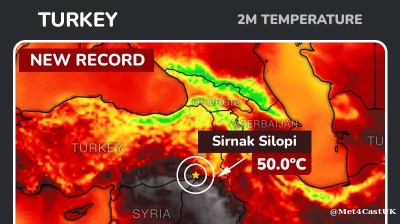Rodrigo Duterte, the former president of the Philippines currently held in The Hague over his controversial drug crackdown, has been elected mayor of his hometown, according to partial results of the May 12 Philippines' mid-term elections, the BBC reported. Despite his arrest and extradition to the Netherlands just two months ago, the 80-year-old has retained his family's political stronghold in Davao.
Duterte's name remained on the ballot as he has not been convicted of any crime. His youngest son, Sebastian, who previously served as mayor, was elected vice-mayor and will assume leadership duties in his father’s absence. Paolo Duterte, another son, kept his seat in Congress, while several of the former president’s grandchildren secured local posts.
The recent midterm elections, which included 18,000 positions across the country, were shaped by the increasingly bitter rivalry between the Duterte and Marcos families. Duterte’s daughter, Vice-President Sara Duterte, faces possible impeachment following a vote by the House of Representatives. Her future now hinges on a Senate trial, where she needs at least nine votes to avoid removal. Unofficial results suggest that the outcome is still unclear.
Meanwhile, two of Duterte’s closest allies—Senator Bong Go and former police chief Ronald “Bato” dela Rosa—were re-elected to the Senate. In contrast, most of President Marcos Jr. 's endorsed candidates underperformed, with only Erwin Tulfo placing in the top five.
Election day was marked by long queues in 33°C heat, reports of voting machine issues, and isolated incidents of violence. Showbiz-style campaigns once again dominated over issues like inflation and infrastructure.
The situation highlights how entrenched political dynasties and oligarchic structures continue to shape democratic outcomes in the Philippines. Power remains highly concentrated, and even international legal proceedings appear unable to loosen a family’s grip on local governance. While elections offer a mechanism for choice, the persistence of dynasties suggests that access to political leadership remains limited to a familiar few.
News

Russian oil tanker diverts from India’s sanctioned Nayara Energy Terminal to Mundra Port
A tanker carrying Russian Urals crude oil, originally scheduled to dock at Nayara Energy’s Vadinar terminal on India’s western coast, has diverted to the nearby Mundra port, according to shipping data and industry sources.

Viktor Orban vows to block next EU budget in keynote speech in Transylvania
Hungarian Prime Minister Viktor Orban repeated his threat to block the next long-term EU budget and argued for a multi-speed Europe, while criticising the EU for supporting Ukraine in his annual keynote address at the Baile Tusnad summer university.

Iran passes controversial fake news bill amid free speech concerns
Iran's parliament on July 27 approved a contentious government bill aimed at "Combating the Spread of Untrue News Content" in social media

Russia, China to set their own gold exchanges, cut ties with Western control
Russia and China are taking concrete steps to reduce Western influence over global gold markets, signalling a broader move towards monetary self-reliance and the redomiciliation of gold reserves away from traditional Western centres.




